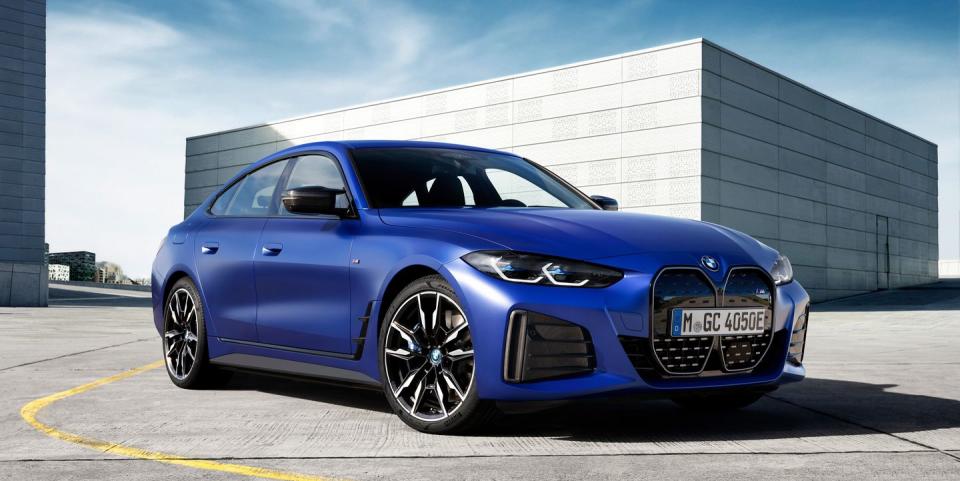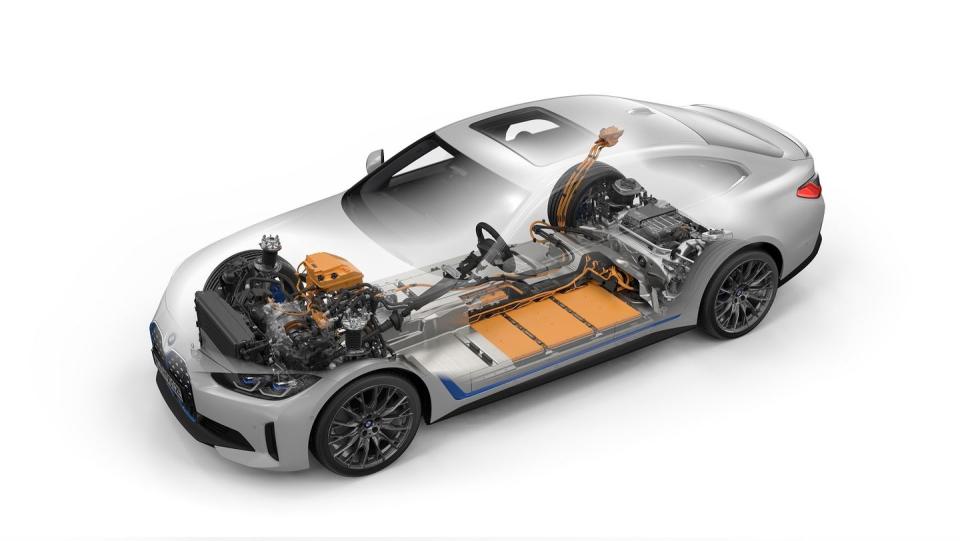Will Future BMW EVs Be Fun to Drive?

BMW is making the transition to electrification.
"By 2023 we will offer our customers at least one BEV option in nearly all our vehicle segments and over the next 10 years we aim to release a total of about 10 million fully electric vehicles onto the market," BMW CEO Oliver Zipse told analysts on an earnings call on August 3.
True, every other manufacturer on the planet is transitioning to an electric future, but for BMW it’s different. BMW was always that special performance carmaker that managed to merge sportiness with what might be considered practicality—you could have fun throwing a BMW into a corner while hauling around the whole family and introducing them to the thrill of lateral g’s. Or maybe car sickness, it all depends. So if BMW is going to go electric, there is a certain emotional investment we’ve all made into the brand that has to go along with it. The company that made the 2002 tii, E36 M3, and still makes the modern M2 and even the M5 CS has an obligation to its beloveds (us) to keep making cars that are fun to drive, doesn’t it? So, the question we’re all faced with here is: Will future electric BMWs still be exciting?

To find out we sat down with product manager for BMW M at BMW NA John Kelly and asked about that and one or two other things. The following conversation has been lightly edited for clarity and length.
Autoweek: It appears the world’s going electric, or it’s going somewhere, probably electric. How is M, our favorite letter of the alphabet, going to make the transition to this electric future?
John Kelly: Electrification is a big part of BMW’s future. And a transition with M has already started with the BMW i4 M50. I had the opportunity to drive it in Europe recently and I have to say the car’s fantastic. So, it really embodies those quintessential characteristics of what makes an M car an M car. It’s not just about one metric that you do really well. Straight-line acceleration, of course, has to be very good. But that’s not the only point. It has to be that well-rounded, well-balanced performance package. And the i4 M50, I think, does this extremely well, with a low center of gravity, tons of mechanical grip, the car just handles great and transitions very smoothly, it’s very predictable. Of course, it’s very powerful. And it has strong brakes. It really is that well-rounded, performance package that we know and love from BMW M.
AW: Everything is going to be electric. Would you say we’re in a big moment of transition?
JK: I think that’s a fair statement, because we’re going from, let’s say, smaller-volume, more niche electrified products into higher volume products. The i4, the iX, these are higher-volume products. We’ll have other higher-volume products coming in the future. And it’s not just from BMW. Industry wide we’re seeing this transition into higher-volume electrified products.
AW: This is a significant time in automotive history.
JK: Absolutely.
AW: While the industry seems to be going all-crossovers, both gas- and electric-powered, BMW still sells almost 50 percent sedans and coupes. Why is that?
JK: I think there is still a significant market for sedans and BMW specifically, if you look at where we built our reputation in the US, it was with sports sedans. If you think about, going way back with 2002s and whatnot. But then, you know, when most Americans think about BMW, one of the immediate things that pops in your mind is something like a 3-Series Sedan. It’s a traditional sports sedan, the 5-Series is a traditional sports sedan. It’s a reputation we built and that legacy continues on and continues to be a very relevant part of the market for us. So, I do see sedans continuing to be of significant importance.
AW: Why do you think that BMW is so successful at selling sedans when others have fallen into crossovers only?
JK: I think part of it is our reputation for selling some of the best sports sedans, you can get some of the best that the market offers. The cars are great, they have a great reputation. And we have high loyalty as well with customers that had a 3-Series or 5-Series and come back for another one. So, I think some of it is reputation. And some of it is what you mentioned, the percentage compared to other OEMs. I can’t speak for them. I’m not sure what their penetrations are, but sedans are still a pretty big business for many of the premium OEMs. I think it’s still a relevant part of the market for BMW and others.
AW: How would you describe the way BMW is going to make electric cars fun in the future?
JK: We position BMW as the ultimate driving machine. And this is very true in how we develop the cars and what we want them to be capable of: That feeling, that sensation you get when you drive the car, it should excite you, it should instill that emotion, that excitement.
And with an electrified vehicle, or let’s say, a fully electric vehicle like the i4 M50, there are certain characteristics of an electric car that go hand-in-hand with the ultimate driving machine: Electric motors are capable of producing a lot of power, high-voltage batteries are capable of outputting a lot of current to generate this power, the batteries are positioned very low in the chassis, for a low center of gravity. There are certain things like weight distribution; on the i4 M50, for example, you have an electric motor on the front and another one on the rear axle and the battery is in the middle. That gives you a near-perfect weight distribution, which gives you, as you surely experienced in that car, very neutral, very balanced handling characteristics, which is quintessential to how BMW M is positioned—and how BMW in general is positioned—as the ultimate driving machine. These characteristics are there.
And then we use our expertise that we’ve built over many years of producing some of these fantastic cars in tuning: tuning the suspension, tuning the steering, tuning the brakes, to have what would be a very good ride quality, but also a very dynamic experience. So, there’s nothing that I would say is in conflict.
AW: An electric car makes it harder to do that because you have probably 1000 pounds more weight, at least, with a battery. Is that going to be something to worry about?
JK: There is weight associated with the battery, but from my personal experience, it was not particularly noticeable due to the center of gravity and where the weight is positioned in the vehicle. So I wouldn’t say that that’s necessarily a conflict or a challenge.
AW: Well, 1000 pounds is a challenge.
JK: It’s a challenge but I think the i4 M50 speaks for itself. The car does a remarkable job of giving you those dynamic qualities that we’ve designed before. (EVs do without 100 pounds or so of gas and a 400-pound or so engine, among other items, too, Ed.)
AW: Anything else you want the world to know about BMW?
JK: We really are at a great time in our product portfolio right now. We have a really fantastic portfolio right now, something to appeal to our broad customer base while still being true to the authenticity of what makes BMW BMW and the ultimate driving machine.
Share your thoughts on the future of BMW performance in the age of EVs in the comments below.

 Yahoo Autos
Yahoo Autos 